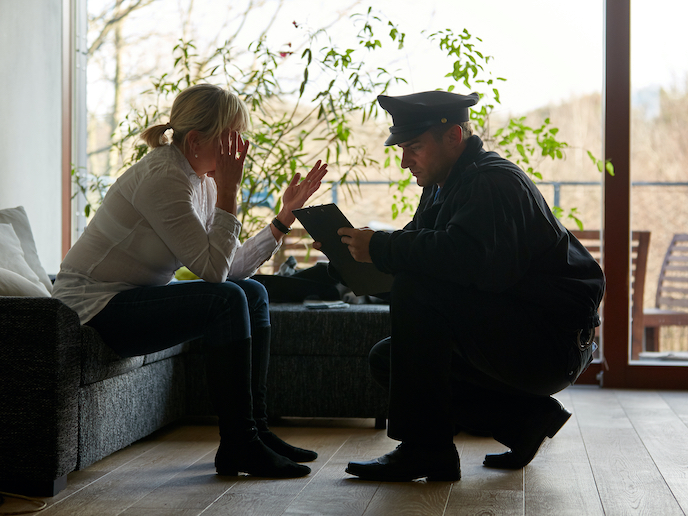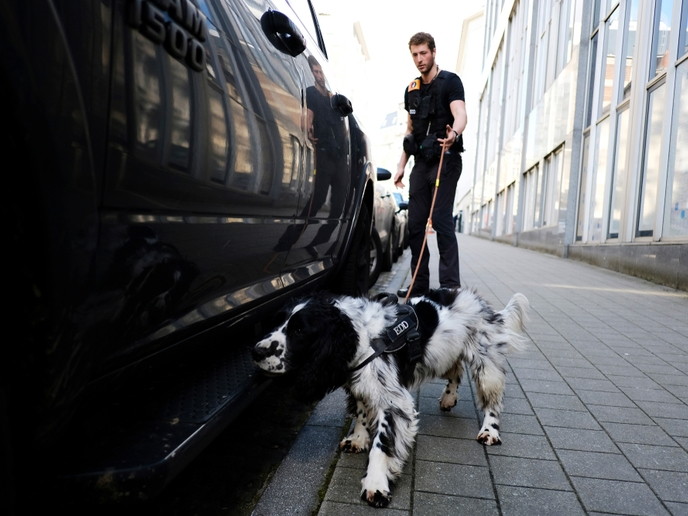Empowering first responders to deal with domestic violence
Every day eight women are killed by their (ex-)partner or family in Europe, according to a www.unodc.org/documents/data-and-analysis/gsh/Booklet_5.pdf (2019 report by the UN Office on Drugs and Crime). A sea of sources reveals bleak statistics. Across Europe the prioritisation of domestic violence (DV) complaints and first responder training varies greatly. By spending time with police forces and getting involved with media outlets, the www.improdova.eu (IMPRODOVA project) has produced a wide suite of tools and training courses for first responders, the media, universities and the scientific community. “The police approach to domestic violence across the EU is very inconsistent. Some forces prioritise it highly and spend 20 % of their time dealing with cases, others won’t even drive to a call out, requiring the abused victim to go to the station and report the incident there,” explains project coordinator Catharina Vogt, based at the German Police University in Münster. She believes that this disparity is in part due to the historic reason behind the establishment of police forces, to keep public order: “Intervention in the private sphere of the family is a rather new development, and probably motivated by the high numbers of dead women. “Lately, research has provided much evidence on how detrimental the effects of domestic abuse are on victims, and even on unborn children and how much society loses when they look away from the problem.” But still, the stereotypical idea that DV is an issue partners and families must resolve among themselves prevails in many European cultures and this was what IMPRODOVA set out to challenge. The project took a very close look at what was happening when officers were called to deal with a case of DV. They conducted 296 interviews at 19 fieldwork locations of best or average practices in fighting DV in eight EU countries (at the time of the research): Austria, Germany, France, Hungary, Portugal, Slovenia, Finland, and Scotland, United Kingdom. “We did not go out on police calls as it was considered too high-risk, but we conducted the interviews at the stations and in other places,” Vogt explains.
The weak areas in victim support
IMPRODOVA interviewed relevant DV police specialists, officers at police management level, and other frontline responders such as medics and social workers. Their key findings were that, when it comes to serving the victim, the problem is that most police officers whom victims of DV encounter, are not specialists. “This means police discretion comes into play in the determination of the level of help that the victim will receive. Because police officers have traditionally tended to view domestic violence as a private family matter rather than the crime that it is, DV victims are often underserved by generalists,” adds Vogt. The project found that the use of discretion, rather than an informed approach, means that the quality of service depends on the quality of the individuals on duty that day, not on the quality of the organisational processes in place. When it comes to the medical profession, healthcare is the major go-to address for DV victims, but practitioners rarely detect DV without routine inquiry being made obligatory. “When they do detect it, they are not adequately trained, prepared or even ‘brave’ enough to intervene and support victims of DV,” says Vogt. Social workers are experts in victim support, but need effective cooperation, especially with police, to really help victims. Often their documentation on a case is not regarded as evidence in front of the court.
Turning things around
The project spread the results of their investigations widely. They presented the information to the police and social workers at high-level police meetings and university lectures, at large medical associations and by providing a training video on DV risk assessment. Law students, student police officers, and teachers attended university lectures presented by IMPRODOVA and in October 2021, the Greek police force asked to use IMPRODOVA’s training material. Further raising awareness of DV issues will be conducted with members of the Greek police. The project also focused on the media, contributing to newspaper articles and appearing on radio and TV, including the highly popular channel France24. To reach the wider public, the team has released an awareness raising video. The project is showing concrete results. In 2020, a new risk assessment tool in France, created by various ministries with the input of the project, was translated into 18 languages, including 3 Creoles. “Since our tool came into force, and it became obligatory for the French police to complete it at every complaint of domestic violence, the number of victims who want to press charges against their perpetrators has increased significantly,” Vogt says proudly. Police training in France will also go far beyond the project’s duration. Based on IMPRODOVA results, a handbook on police management of DV has been created for police and gendarmerie officers. Some 22 000 copies will be sent to all territorial districts and police/gendarmerie training facilities by the end of 2021. “The handbook can benefit every police officer, gendarme and DV-specialised social worker in France,” adds Vogt.
Keywords
IMPRODOVA, domestic violence, DV, domestic abuse, police, social workers, healthcare, prevention, detection, mitigation







